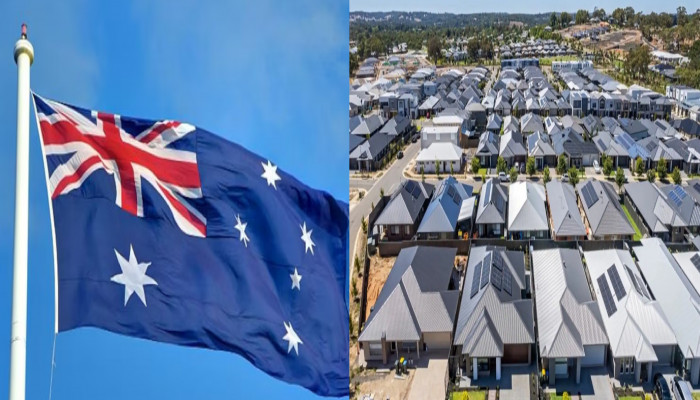Australia to ban foreign buyers from purchasing existing homes for two years
- In Reports
- 03:27 PM, Feb 17, 2025
- Myind Staff
Australia has introduced a two-year ban on foreign investors buying existing homes, which will start on April 1, 2025. This move is part of efforts to tackle the ongoing housing crisis. The goal is to make about 1,800 properties available each year for local buyers. The decision comes as housing affordability continues to be a major concern, especially with the upcoming general elections.
Together with housing minister Clare O'Neil, treasurer Jim Chalmers announced in a statement that "we're banning foreign purchases of established dwellings from April 1, 2025, until March 31 2027." The prohibition is viewed as a step to relieve strain on the housing supply and will remain in effect until March 31, 2027. The policy will undergo a review to see if it needs to be expanded further. According to the government's plan, from April 1, 2025, to March 31, 2027, foreign investors—including temporary residents like international students and foreign-owned businesses—will not be permitted to buy an established home in Australia. To encourage more housing supply, the government will allow people to buy new homes. They will also take action against land banking by requiring foreign investors who buy empty land to develop it within a set time. For new projects, foreign investors can own no more than 50% of the property, ensuring that local buyers and investors have a significant share.
Foreign owners of properties that stay vacant for more than six months in a year will be charged an annual vacancy fee. This is aimed at preventing "land banking," where foreign investors hold onto land without using or developing it, which drives up housing prices and limits availability for local buyers. Land purchases by foreign investors must be developed within a specific time frame to prevent the land from sitting idle and contributing to housing shortages. This new measure aims to tackle the ongoing housing affordability issue that has been affecting many Australians, especially in major cities like Sydney and Melbourne. The Labour Party's policy is similar to one introduced by the previous Coalition government, which also tried to reduce the impact of foreign investment on Australia's housing market. According to data from property consultancy CoreLogic, the Straits Times stated that "in Sydney, housing values have jumped almost 70% over the past 10 years, with the median dwelling price now around A$1.2 million (S$1.02 million)." Additionally, rents have been rising.
"Overseas investors bought A$4.9 billion of residential real estate – including vacant land, new and established dwellings – in the 12 months ended June 30, 2023, according to the Australian Taxation Office. Established dwellings accounted for about one-third of the total," it added. The proposed ban on foreign buyers aims to target overseas purchasers of existing homes, excluding new homes or properties under development, in a bid to reduce competition for limited housing stock and alleviate rising prices. This policy is motivated by concerns that foreign investment has contributed to Australia's housing affordability crisis, as local buyers, often with less capital, struggle to compete against overseas investors who can outbid them.
The two-year ban on foreign investment in Australia's housing market aims to give the market time to adjust and increase availability for local buyers, with a review of the policy expected after this period. The long-term goal is to make housing more accessible by controlling external demand and stabilising the domestic market, addressing the structural challenges in the housing system. While the ban could potentially cool down housing prices in certain areas, some experts express concern that it may reduce overall demand, which could slow new development or negatively impact the economy in other ways.







Comments